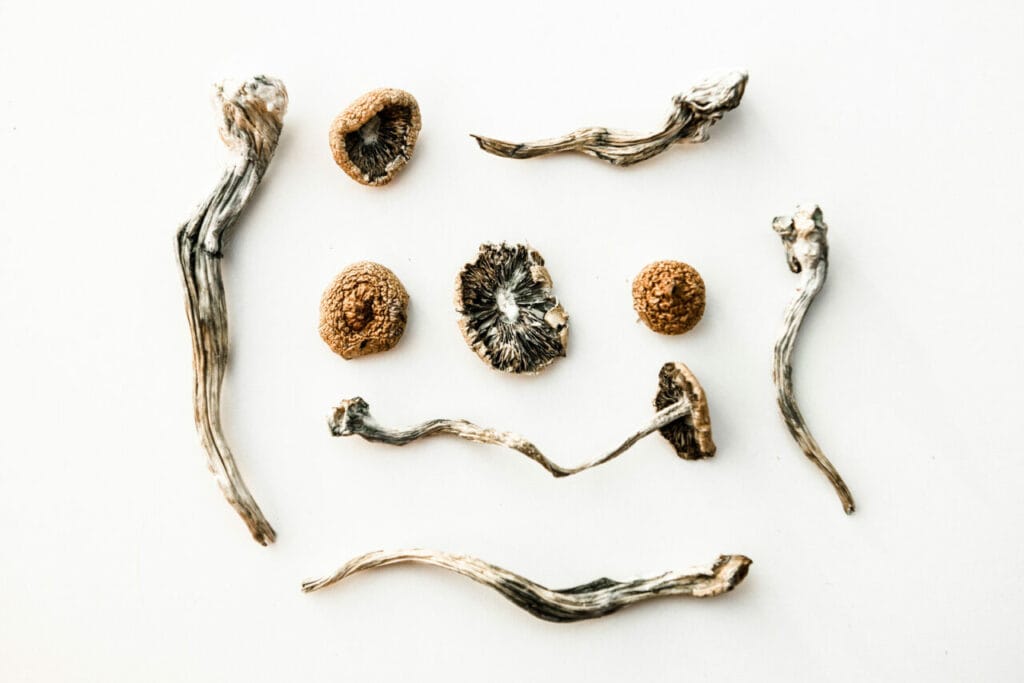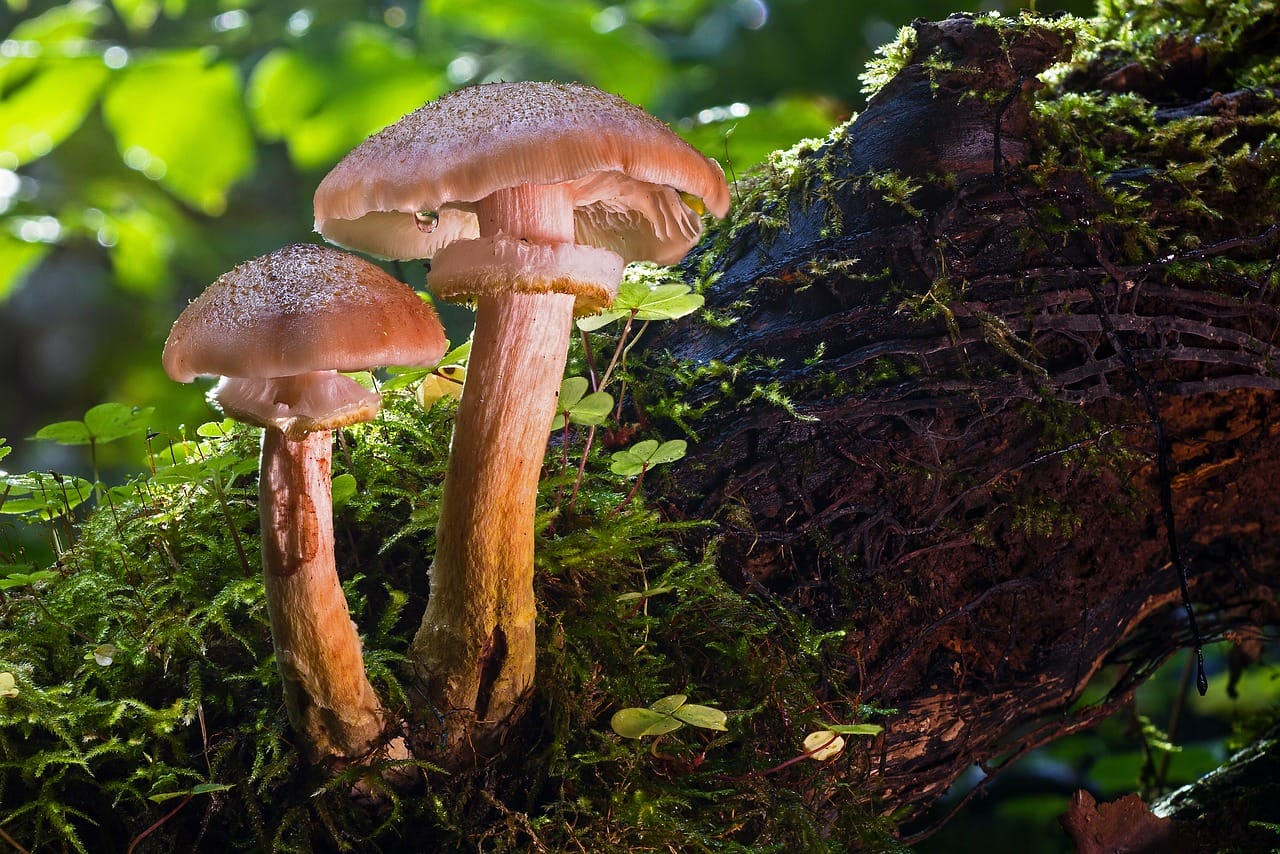At first, many Canadians perceived magic mushrooms merely as a psychedelic substance for recreational use. However, when researchers began studying its active ingredient, psilocybin, they found its powerful effectiveness in addressing various mental health conditions.
As we gather more information, our understanding of how psilocybin can be used grows. This increased knowledge makes it easier for people to access these products through magic mushroom delivery services. A recent study points to its role in human consciousness. Could this be the key to its profound impact on the human brain? Let’s dive deeper into this fascinating exploration of magic mushroom products.
Key Points:
- The cognitive functioning of early humans was influenced by psychedelic magic mushrooms, contributing to their survival.
- Mushrooms play a significant role in neurological health, thanks to their capacity to alleviate PTSD, depression, and anxiety.
- The effects of psilocybin on consciousness and brain function may have boosted creativity, introspection and abstract thinking.

Historical Use and Significance of Magic Mushrooms
Historical evidence suggests that our ancestors have been utilizing the power of psychedelic magic mushrooms since ancient times. They were used in sacred rituals and traditional ceremonies by indigenous peoples to honor their gods. These mushrooms are found worldwide, particularly in subtropical and tropical areas, including South and Central America, the Caribbean, Southeast Asia, and Africa.
Shrooms in Ancient Civilizations
The Indigenous people of Mexico have used these fungi for spiritual enlightenment, divine communication, and religious rituals for centuries. The Aztec Indians of South America referred to it as “God’s Flesh” and incorporated it into healing practices.
Archaeological evidence shows usage that dates back to:
- Around 10,000 years ago in Australia
- Approximately 7,000 years ago in North Africa
- About 6,000 years ago in Spain.
Some researchers use these discoveries as evidence of the long-standing historical use of psilocybin. Once ingested, these mushrooms induced a euphoric state, with hallucinations often presenting as complex geometric and visual designs.
Mushrooms and Their Place in Spain’s Bronze Age History
In the mid-1990s, remnants, especially hair strands from approximately 200 Bronze Age societies, were unexpectedly found inside a cave in Minorca, Spain. The artifacts were exceptionally well-preserved due to the cave’s blocked entrance by fallen debris. Examination revealed that these hair samples contained traces of three alkaloids, compounds known to affect the human mind and produce altered states of awareness.
These discoveries provide fascinating perspectives into why and how ancient societies used these substances. Surprisingly, achieving an altered state was quite common in those days. However, the question still stands: what influence did these substances have on human evolution?
Psilocybin and the “Big Bang Theory” of Human Evolution
Recently, there has been a renewed interest in psychedelic research, which supports the theory that psychedelics contributed to the evolution of consciousness. This idea, known as the stoned ape theory, was proposed by ethnobotanist Terence McKenna. The theory posits that the use of psychedelics may have influenced the cognitive and cultural evolution of humans.
According to Dr. Thomas Falk, a professor of Philosophy and Education at the University of Dayton, this theory could potentially account for the so-called “creative explosion” that took place among Homo sapiens around 40,000 years ago, signifying a significant leap in early human cognitive capabilities.
It’s hypothesized that psychedelics allowed early humans to dwell in self-created realms. Eventually, their enhanced cognitive abilities let them replicate these experiences in their physical environments.
Terence McKenna’s “Food of the Gods” provides his arguments that the stoned ape theory has its roots in ancient shamanistic rituals and a speculated variety of plants and fungi.
“Ability to Initiate Neurological and Psychological Transformations”
Psychoactive substances possess the potential to instigate significant neurological and psychological changes. These transformations could have played a crucial role in the development of our species.
The study employs a multidisciplinary approach, encompassing biology, ethnobotany, and neuroscience, to delve into existing research on psilocybin and human consciousness. It postulates that early humans, during their shift from forest-based to grassland environments, were exposed more to animal dung, thereby increasing their consumption of these fungi. The study cites the “stoned ape” hypothesis, which suggests that this dietary evolution could have triggered substantial changes in the brains of early hominids.
Consequences of Psychoactive Substance Consumption
The potential ramifications of these fungi ingestion could include improved hunting and foraging skills, elevated sexual drive, and heightened sensory perception. Considering psilocybin’s impact on consciousness and brain function, it is conceivable that these factors could have encouraged creativity, self-reflection, and abstract thinking, all of which are key in the development of language.
The Peruvian researchers who led the study emphasize the need for additional investigations into these substances’ effects on the brain and human evolution. Even though it has affected brain areas responsible for memory, decision-making, and introspection, the evolutionary implications remain an active area of research.
An independent genetic study posits that magic mushrooms emerged about 67 million years ago. Human consumption of these fungi began millions of years ago, predating the introduction of marijuana.
What are Dried Magic Mushrooms?
These contain a hallucinogen called psilocybin. The effects can vary depending on individual tolerance, body weight, and method of ingestion. Here are some expected effects:
- Profound happiness
- Sensation of peace
- Spiritual revelation and self-reflection
- A dreamlike state characterized by a sense of detachment from one’s physical environment
- Visual alterations, such as the perception of halos around lights and vivid colors
- Enhanced sense of well-being
While it is used recreationally, many people also use it for its medicinal properties, particularly for its positive effects on brain health.
Effects on Neurological Health
The active ingredient alters mood, perception, and cognition. It does this by interacting with the serotonin receptors in the prefrontal cortex. The enhanced cognitive functions, such as manipulating visual and auditory experiences, intensify one’s task performance.
Connection to Our Ancestors
This principle can also be applied to our early ancestors, particularly the so-called ‘stoned apes.’ Their discovery and use of these fungi, especially during their ecological transition from forest to grassland habitats, resulted in increased exposure to animal feces, subsequently boosting their consumption of these mushrooms. The “stoned ape” hypothesis, mentioned in the study, suggests that this dietary shift could have stimulated significant changes in the brain structures of early hominids.
The intake of psilocybin mushrooms may have influenced the evolution of their consciousness and cognitive abilities. This might illustrate how they gained crucial survival skills.Present and Future Implications
Recent research shows that individuals suffering from afflictions such as cluster headaches, anxiety, anorexia, obsessive-compulsive disorder, PTSD, and depression typically exhibit low serotonin levels. Although Selective serotonin reuptake inhibitors (SSRIs) are the standard treatment, they often require a significant length of time to show improvement. Conversely, shrooms can provoke immediate alterations in brain neuron connectivity.
Modern Psychedelic Research – Clinical Trials
Scientists, from the early 2000s, have been exploring innovative treatments designed for individual patient needs for various psychiatric and behavioural disorders.
Due to its capacity to infiltrate the central nervous system and boost cognitive function, it has proved effective in therapy. Recent research progress in 2020 suggests that psychedelic therapy using psilocybin products relieves severe depression.
As pointed out by Professor Matthew Johnson from Johns Hopkins Medicine, these substances alter the interaction between different brain systems. A noticeable increase in connectivity between brain regions that usually don’t communicate effectively is observed. In contrast, areas that frequently interact exhibit reduced communication.
This induced disarray is not merely a side effect but holds potential therapeutic value. Depressed individuals often find themselves in self-critical, repetitive thought cycles that worsen their condition. Psychedelics disrupt these patterns, making it easier for individuals to escape from their deeply embedded negativity during a psychedelic experience. This leads to more flexible thinking and the ability to manage critical thoughts.
Purchasing Magic Mushrooms Online: Your Gateway to Recovery
An extensive variety of these controlled substances can be found online. Choose from a collection that is safe and laboratory-tested, mitigating the risk of accidentally buying poisonous mushrooms. Dependable sellers assure the quality and safety of the products they offer.
| Product | Psilocybin Content | Psilocin Content | Benefits |
| Enigma | 0.76% | 0.07% | Boosts Focus and Uplifts Mood |
| Atlantic Treasure Coast | 0.59% | 0.08% | Augments Concentration, Spurs Creativity, Fosters Neuroplasticity |
| Blue Magnolia | 0.58% | 0.08% | Enhances Memory, Assists in Fighting Depression and Anxiety |
| Cambodian | 0.45% | 0.06% | Aids in Treating PTSD and Anxiety, Supports Substance Abuse Recovery, Elevates Mood |
Unmasking the Untapped Potential of Magic Mushrooms
All the progress we witness today, including civilizations, urbanizations, and societies, are outcomes of diverse developments. Even if the stoned-ape hypothesis is merely a theoretical debate, scientific researchers are steadily uncovering evidence corroborating the role of psilocybin in human evolution.
If you’re in search of a boost in cognitive growth, Deadhead Chemist Canada’s magic mushroom delivery is your prime destination. We offer a broad selection of superior quality shrooms from A to Z, with quick shipping options across British Columbia and beyond.
Discover the future of personal growth — peruse our assortment of superior psychedelics online in Canada today.
Commonly Asked Questions
Which type of shrooms did ancient civilizations use?
Various types of fungi exist worldwide, hence there isn’t a single kind consumed by all societies. Some were partial to the well-known liberty caps, while others opted for Psilocybe cubensis. Most consumed these mushrooms in their natural state or processed them into edible forms like tea blends.
What role do psychedelics play in modern human development?
In the contemporary world, psychedelics primarily function by activating the 5-HT2A receptor subtype. This interaction has proven beneficial in handling stress-related disorders and significantly impacting creativity and social behaviour. Such effects could enhance adaptability and survival, especially in societies heavily reliant on knowledge and social cooperation.
Did shroom-based spiritual rituals have a role in human evolution?
Yes, spiritual rituals involving shrooms have indeed influenced human evolution by moulding cultural, religious, and social frameworks. They foster a deep sense of connection, creativity, and community cohesion.
Suggested Reads:





